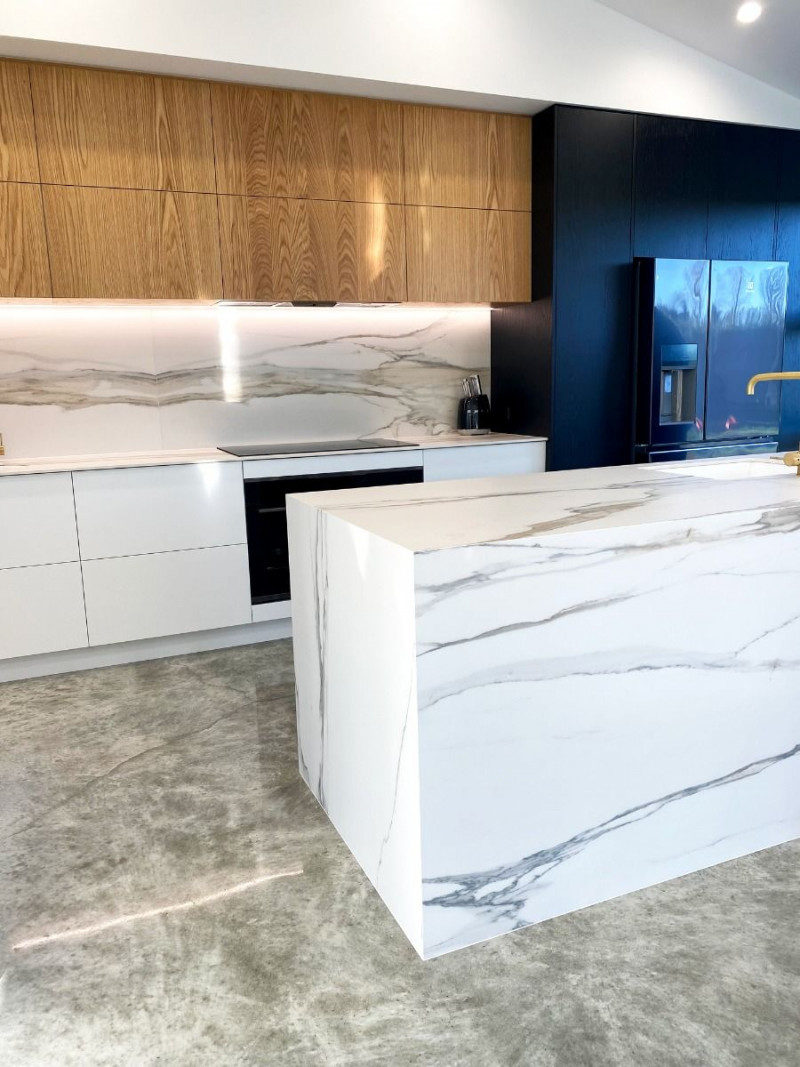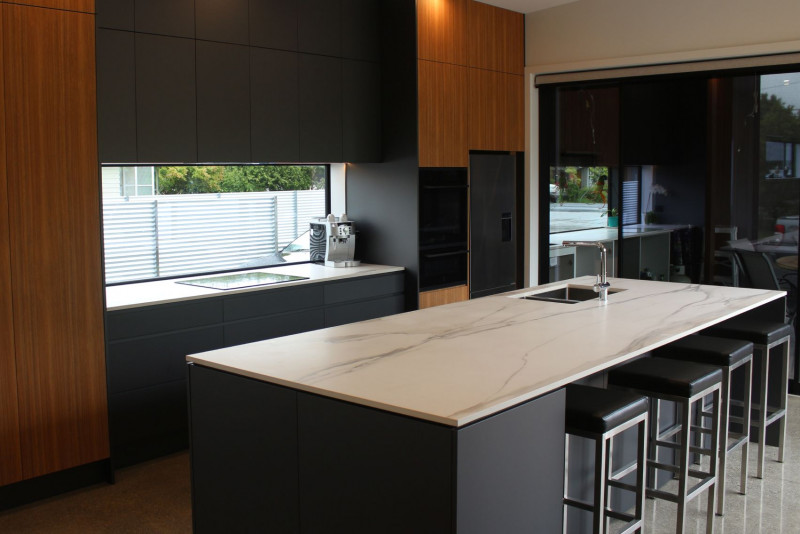-
New Zealand
Copyright © 2025 Powered by BCI Media Group Pty Ltd
Confirm Submission
Are you sure want to adding all Products to your Library?
Contact Detail
13 Jul 2023 by Archant

When it comes to choosing a benchtop for your kitchen, it can be difficult to decide between porcelain and engineered stone. Both materials offer a range of benefits, but they also have different characteristics that are worth considering when making your decision.
At Archant, we understand the importance of choosing the right material for your benchtop. Not only will the material you choose affect the look and feel of your kitchen, but it also affects its durability, performance, and maintenance requirements.
When deciding on a benchtop material, it’s essential to consider factors such as your lifestyle and the amount of use the benchtop will receive. For instance, if you’re an avid home chef, you’ll need a material that can handle the wear and tear of frequent chopping and cutting. On the other hand, if you’re looking for a more decorative piece, you’ll want to opt for a material that looks nice and won’t scratch or chip easily.
Another important factor to consider when choosing a benchtop material is maintenance. Some materials require frequent sealing to protect them from scratches or spills, while others are much more low-maintenance and don’t need to be sealed. Depending on how much time and effort you’re willing to invest in upkeep, this can be an important factor in your decision.
To make the decision a little easier, here are 10 of the main differences between porcelain benchtops and engineered stone.

In Conclusion
When it comes to kitchen benchtops, there is no one-size-fits-all solution. Each material has its unique benefits and drawbacks that must be weighed carefully before deciding on a material. Porcelain and engineered stone are two popular materials, but which one is right for you?
The best choice for you will depend on your needs and preferences. Porcelain benchtops offer a classic and timeless look with rugged durability, while engineered stone offers some cost savings and versatility. Both are incredibly strong and easy to clean and will add an elegant touch to your kitchen.

Visit a Showroom to See Our Stylish Benchtop Selections
If you’re looking for the perfect benchtop for your kitchen renovation, look no further than Archant. With a wide range of products, excellent customer service, and design expertise, we’ll work with you to ensure that you’re completely satisfied with your benchtop purchase.
At Archant, we pride ourselves on offering excellent customer support and a range of products that offer value for money. We’ll provide you with advice and guidance when it comes to selecting the right benchtop and can give you a free quote so that you can make the most informed decision. Get in touch with your local Archant showroom today to find out more.



